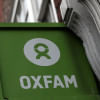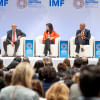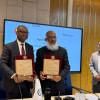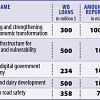$1b WB loan unlikely this fiscal year

Bangladesh's request for additional budget support of $1 billion from the World Bank is unlikely to come through this fiscal year, dashing the government's hope of meeting a portion of the budget deficit with cost-effective funding.
The Washington-based multilateral lender conveyed the update during the three-day visit of Martin Raiser, its recently-appointed vice-president for South Asia, The Daily Star has learnt from people familiar with the discussions, who requested anonymity to disclose sensitive deliberations.
This fiscal year, the country is on course to receiving $500 million in budget support from the Washington-based lender under two programmes: 'Bangladesh Green, Resilient and Inclusive Development Policy Credit (GRID DPC)' and the 'Bangladesh Second Recovery and Resilience DPC'.
But an additional $1 billion was sought to meet fiscal 2022-23's budget deficit of Tk 245,064 crore, which is 5.5 percent of GDP.
The government is bidding to meet the deficit with loans from development partners, which come at concessionary rates, instead of going for the costlier option of domestic borrowing.
To secure a sum of that scale from the WB, Bangladesh needs to commit to a strong reform programme, which would take time to draft.
However, further talks on the matter will take place during the annual meetings of the International Monetary Fund and the World Bank Group scheduled to be held in person in Washington DC from October 10 to October 16.
On Monday, Raiser, who arrived in Dhaka that day, held meetings with Ahmad Kaikaus, principal secretary to the prime minister; Sharifa Khan, secretary to the Economic Relations Division; Fatima Yasmin, secretary to the finance division; and Abdur Rouf Talukder, governor of the Bangladesh Bank.
Yesterday, he met with Salman F Rahman, private industry and investment advisor to the prime minister; Nasrul Hamid, the state minister for the ministry of power, energy and mineral resources; and AHM Mustafa Kamal, the finance minister.
In his meetings, Raiser enquired about the dwindling foreign currency reserves, default loans, financial sector reforms, inflation and the macroeconomic situation, and the interest rate cap.
He was particularly interested in the impact that the 9 percent ceiling on the interest rate for loans has had on the economy and whether it contributed to the escalating inflation.
As per the most recent available data, which is of July, inflation stood at 7.49 percent, well above the budgetary target of 5.6 percent.
"We told him that the lending rate cap was not an issue at all. It has served the economy well, so we will not be lifting it anytime soon," said an official informed on the conversations.
He was told that the pressure on the foreign currency reserves is subsiding due to the raft of measures the government has taken to cut back on imports.
"So, there is unlikely to be any long-term problem on the reserves," the official added.
Reserves stood at $37.06 billion after the $1.73 billion payment to the Asian Clearing Union on September 7.
Bangladesh, which is one of the highest borrowers from the WB, will set its own economic policies and the lender will support the country, Raiser said in his meeting with Kamal, according to a press release from the finance ministry.
The WB can also broadcast the story of Bangladesh's economic progress to other countries.
In his meeting with Rahman, the two discussed the economic challenges stemming from the Ukraine war and how Bangladesh responded, public-private partnerships, regional integration and financial reforms needed for a competitive private sector, Raiser wrote in a tweet.
He discussed renewable energy and cross-border energy trade with neighbours, electronic vehicles and next-gen tech solutions for the power and energy sector in his meeting with Hamid.

 For all latest news, follow The Daily Star's Google News channel.
For all latest news, follow The Daily Star's Google News channel. 








Comments